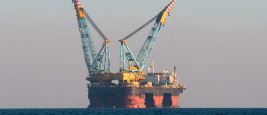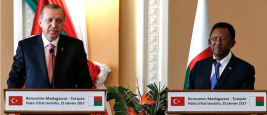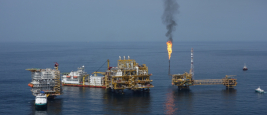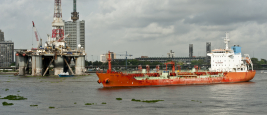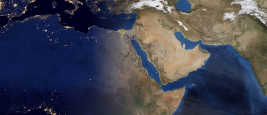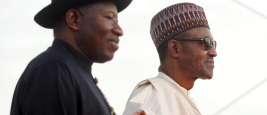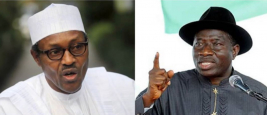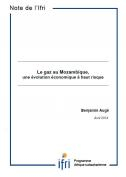
Benjamin AUGE
Associate Research Fellow, Sub-Saharan Africa Center / Center for Energy and Climate
Research Interests:
- Oil, gas, governance
- Hydrocarbon exploitation in transboundary and disputed areas
- African diplomacies and relations between Africa and the Arab world
- Algeria, Nigeria, Mauritania, Angola, Equatorial Guinea, Uganda, Democratic Republic of Congo, Republic of Congo, Gabon, Mozambique
Benjamin Augé has been an Associate Research Fellow at Ifri since June 2010. He holds a PhD in geography from the French Institute of Geopolitics (University of Paris 8) and is also the editor-in-chief of the newsletter Africa Energy Intelligence (Indigo Publications Group). He teaches the Geopolitics of oil and gas in Africa and the specific cooperation between Gulf countries and Africa within HEC Executive masters. He is also a guest lecturer at the Netherlands Diplomatic Academy (Clingendael).
His research focuses on the governance of the oil and gas sector in African countries. He is particularly interested in conflicts between different actors (local, national, international) for the control of oil areas as well as border disputes related to oil and gas fields. Benjamin Augé also works on the relations between the African continent and some other external powers (Qatar, Saudi Arabia, Turkey, Cuba and Israel) and on the African Union issues.
Recent offshore gas discoveries in the Eastern Mediterranean, primarily in Egypt as well as in Israel, but also around Cyprus, are dramatically changing these countries' energy perspectives and economies, and also influence geopolitical balances in the region.
The July 2016 failed coup against President Recep Tayyip Erdoğan’s government not only resulted in a dramatic upheaval in Turkey, it also had a significant impact on the structure of its international relations and its networks of influence abroad.
The fall in oil prices, which began in fall 2014, had a significant influence on the strategies of the key players in the oil industry in Africa.
The study and comparison of different National Oil Companies (NOC) help understanding the political history of Algeria, Nigeria and Angola. The NOC’s role and activities depend on several economic and political aspects. For example, Angolan Sonangol has been the coffer for the Popular Movement...
In the space of 20 years, under the leadership of the former Emir, Hamad bin Khalifa Al Thani, in power between 1995 and 2013, Qatar became a country which matters due to its status, obtained in 2006, as the leading world producer of liquefied natural gas (LNG).
The recent discovery of the giant Zohr's gas field will drastically change the energy future of Egypt, which is today increasingly dependent on imports to meet its growing domestic demand.
Nigeria has experienced a political changeover due to the presidential and parliamentary elections on 28 March 2015, enabling Muhammadu Buhari – a retired general who was in power between 1983 and 1985...
The position of oil companies toward East Africa has changed considerably since 2006 when the first reserves in Uganda came to light. However, for many investors interested in the region, it remains difficult to get a clear picture of the scale of developments of this sector.
Nigeria is entering a new electoral cycle, holding its sixth general elections since the restoration of civilian rule in 1999. The elections were initially scheduled for February 14 (presidential elections) and 28 (governorship elections), 2015. The first round has now been postponed until...
Since oil was discovered in Uganda in 2006, East Africa has been an arena for a race in the exploration for hydro-carbons. Yet the oil reserves in Uganda, the more recent and modest ones in Kenya and the few pockets of gas in Ethiopia are on a completely different scale from the enormous gas...




